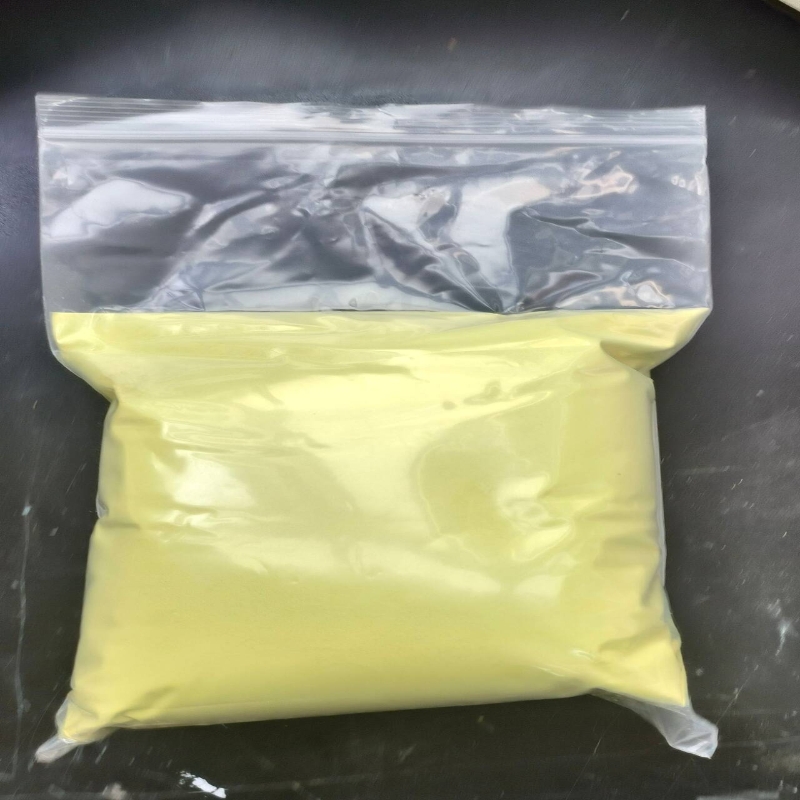-
Categories
-
Pharmaceutical Intermediates
-
Active Pharmaceutical Ingredients
-
Food Additives
- Industrial Coatings
- Agrochemicals
- Dyes and Pigments
- Surfactant
- Flavors and Fragrances
- Chemical Reagents
- Catalyst and Auxiliary
- Natural Products
- Inorganic Chemistry
-
Organic Chemistry
-
Biochemical Engineering
- Analytical Chemistry
- Cosmetic Ingredient
-
Pharmaceutical Intermediates
Promotion
ECHEMI Mall
Wholesale
Weekly Price
Exhibition
News
-
Trade Service
Alzheimer's disease (AD) causes problems such as memory loss and cognitive decline, and a series of pathological changes, including the deposition of large amounts of β amyloid protein (A beta), have been quietly occurring in the brains of patients in the years or even decades since clinical symptoms appeared.
have defined the stages in which there is no cognitive impairment, but there are already pathological protein deposits, as the early stages of AD disease.
a new study published in the journal Nature, scientists at the University of Tubingen and the Center for Neurodegenerative Diseases (DZNE) in Germany redefined "early AD."
they have shown through animal experiments that the chain reaction of a beta aggregation has begun at an earlier stage, before signs of deposition, and that intervention in the formation of a small number of aggregates (seeds) is essential to prevent the onset of AD.
on the cause of AD, a mainstream view is that the β accumulation of pathological amyloid protein is the cause of disease.
pharmaceutical companies have also developed a variety of drugs that target these protein depositions.
, however, most of these drugs have not been effective in helping patients delay progression.
The authors note that protein deposition is already a relatively late stage of A-beta aggregation during AD development, and before visible deposition is formed, small amounts of pathogenic A-beta begin to accumulate, like a clustered "seed", triggering more pathological protein snowballs, and we know little about this early process.
A-beta-targeted antibodies in different ways, can they identify and eliminate aggregation "seeds" formed by A-beta? This may be the key to intervention in AD.
the study, researchers tested six antibodies on genetically modified mice.
the mice began to see visible amyloid protein deposits in their brains at about 9 months, due to the expression of A-beta pregenital proteins.
the researchers injected antibodies into mice for five consecutive days when they were 6 months old, before protein deposits appeared.
6 months later, the results showed that aducanumab monoantigen worked most effectively among a variety of antibodies targeting A-beta, resulting in a significant reduction in protein deposits in the brains of mice, which was only half that of the untreated group! Since there is currently no way to directly "see" what A-beta aggregates look like, to understand the effects of aducanumab monoantigens on A-beta small aggregates, the researchers designed a set of experiments that indirectly detected the ability of these aggregated "seeds" to trigger further deposition of proteins.
study showed that further deposition of A-beta aggregation seeds in the brains of mice was reduced by nearly 90 percent after receiving aducanumab injections.
After the injection of aducanumab, the A-beta "seeds" in the brains of mice were reduced, so the late-triggered protein aggregation was significantly less than in the control group (Photo Source: Reference 1) "This short-term antibody therapy clearly eliminates the aggregated 'seeds', while the production of new 'seeds' takes a considerable amount of time and therefore forms much less protein deposition in the weeks and months following treatment."
," said Professor Mathias Jucker, who led the study.
Although the results are currently only those obtained in mouse trials, the researchers note that if the same condition is determined in humans, the treatment of Alzheimer's disease should begin early to prevent this early process.
In addition, the researchers analyzed the different antibodies in combination with the form of A beta and found that aducanumab monoantigens were highly selective in binding to larger A-beta oligomers rather than identifying monomers or oligomers, which may explain why it is the only one that works in these antibodies.
based on these findings, "we need to pay more attention to the early stages of AD and look for biomarkers for it."
Jucker added, "We also need more antibodies to identify different types of small aggregates and help us understand how they trigger chain aggregation reactions and how they can be applied to treatment."
" Reference. (2020) Acute targeting of pre-amyloid seeds in transgenic mice reduces Alzheimer-like pathology later in life. Nat Neurosci .The Long Road to Dementia. Retrieved Nov. 18, 2020 from In Mice, Aducanumab Neutralizes Aβ Seeds. Retrieved Nov. 18, 2020, from




![2-(Hydroxymethyl)benzo[b]thiophene](https://file.echemi.com/fileManage/upload/cas/593/e79a972f-b55d-4dc1-9113-841c417e0a89.png)


